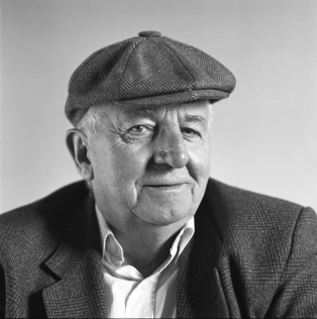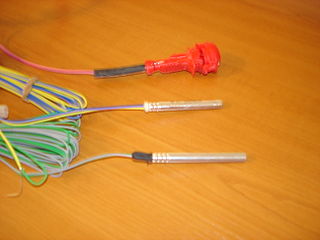The Real Irish Republican Army or Real IRA (RIRA), also called the New IRA (NIRA) since 2012, is a dissident Irish republican paramilitary group and internationally-designated terrorist organization which aims to bring about a united Ireland. It formed in 1997 following a split in the Provisional IRA by dissident members, who rejected the IRA's ceasefire that year. Like the Provisional IRA before it, the RIRA sees itself as the only rightful successor to the original Irish Republican Army and styles itself as "the Real Irish Republican Army" in English or Óglaigh na hÉireann in Irish. It is an illegal organisation in the Republic of Ireland and designated as proscribed terrorist organisation in the United Kingdom and the United States.

Tom Maguire was an Irish republican who held the rank of commandant-general in the Western Command of the Irish Republican Army (IRA) and led the South Mayo flying column.

The Birmingham Six were six men: Hugh Callaghan, Patrick Joseph Hill, Gerard Hunter, Richard McIlkenny, William Power and John Walker, who, in 1975, were each sentenced to life imprisonment following their false convictions for the Birmingham pub bombings. Their convictions were declared unsafe and unsatisfactory and quashed by the Court of Appeal on 14 March 1991. The six men were later awarded compensation ranging from £840,000 to £1.2 million.

Joe Cahill was a prominent figure in the Irish Republican movement in Northern Ireland and former chief of staff of the Provisional Irish Republican Army (IRA). He joined a junior-republican movement, Na Fianna Eireann, in 1937 and the following year, joined the Irish Republican Army. In 1969, Cahill was a key figure in the founding of the Provisional Irish Republican Army. During his time in the Provisional IRA, Cahill helped import weapons and raise financial support. He served as the chief of staff in 1972, but was arrested the following year when a ship importing weapons was intercepted. After his release, he continued to serve on the IRA Army Council and lead all financial dealings for Sinn Féin. In the 1990s, the IRA and Sinn Féin began to work on seeking peace. Cahill served on the council that called a cessation on 21 July 1996. Cahill attended several of the talks that finally led to the Good Friday Agreement on 10 April 1998. Shortly after the agreement was made, Cahill resigned as treasurer of Sinn Féin. To honour his service, he was made honorary Sinn Féin Vice-President for life.
The Guildford pub bombings occurred on 5 October 1974 when a subgroup of the Provisional Irish Republican Army (IRA) detonated two 6-pound gelignite bombs at two pubs in Guildford, Surrey, England. The pubs were targeted because they were popular with British Army personnel stationed at Pirbright barracks. Four soldiers and one civilian were killed. Sixty-five people were wounded.

Denis Martin Donaldson was a volunteer in the Provisional Irish Republican Army (IRA) and a member of Sinn Féin who was killed following his exposure in December 2005 as an informer in the employ of MI5 and the Special Branch of the Police Service of Northern Ireland. It was initially believed that the Provisional IRA were responsible for his killing although the Real IRA claimed responsibility for his murder almost three years later. His friendship with French writer and journalist Sorj Chalandon inspired two novels: My Traitor and Return to Killybegs.
Owen Gerard Carron is an Irish republican activist, who was Member of Parliament (MP) for Fermanagh and South Tyrone from 1981 to 1983.
Provisional Irish Republican Army arms importation into the Republic of Ireland for use in Northern Ireland began in the early 1970s. With these weapons it conducted an armed campaign against the British state in Northern Ireland.
Liam Campbell is an Irish republican from Dundalk, County Louth, Republic of Ireland.
Gerry McGeough is a prominent Irish republican who was a volunteer in the Provisional Irish Republican Army (IRA), a former Sinn Féin activist and editor of the defunct The Hibernian magazine. McGeough broke with Sinn Féin in 2001 and he is now an independent Irish Catholic/nationalist activist. McGeough was set to serve 20 years imprisonment after being found guilty in 2011 for attempted murder, although he was released two years later, on 29 January 2013, under the Good Friday Agreement.

On 3 August 2001, the Real IRA, a dissident Irish republican organisation and splinter of the Provisional IRA, detonated a car bomb containing 100 lb (45 kg) of homemade plastic explosives in Ealing Broadway, West London, England. The bomb was in a grey Saab 9000 near the train station, restaurants and pubs, which exploded shortly after midnight, injuring seven people. Debris caused by the bomb spread more than 200 m (220 yd). The bomb was timed to target leaving karaoke pub-goers - but whilst most escaped injury, the explosion still caused significant damage to property, estimated to be around £200,000. The adjacent Ealing Broadway shopping centre was also damaged by flooding arising from the water main under the car bomb being ruptured.
George Harrison (1915–2004) was a member of the Provisional Irish Republican Army.
Donna Maguire is a former volunteer in the Provisional Irish Republican Army (IRA) once described as Europe's most dangerous woman.

Angelo Fusco is a former volunteer in the Belfast Brigade of the Provisional Irish Republican Army (IRA) who escaped during his 1981 trial for killing a Special Air Service (SAS) officer in 1980.
Paul "Dingus" Magee is a former active service volunteer in the Belfast Brigade of the Provisional Irish Republican Army who escaped during his 1981 trial for killing a member of the Special Air Service (SAS) in 1980. After serving a prison sentence in the Republic of Ireland, Magee fled to England where he was imprisoned after killing a policeman in 1992. He migrated to the Republic of Ireland as part of the "Northern Ireland peace process" before being released from prison in 1999, and subsequently avoided extradition back to Northern Ireland to serve his sentence for killing the member of the SAS.
Sean Gerard McCann, also known as Sean John McCann, is a Canadian citizen who was one of four suspected members of the Provisional Irish Republican Army arrested by the FBI, with help from the BATF, following a two-month investigation that culminated in the attempted purchase of a Stinger missile in January 1990.
Colin Duffy is an Irish republican, described by the BBC as the most recognisable name and face amongst dissident republicans in Northern Ireland. He was cleared of murder charges in three court cases involving police and army killings.

The 1973 Old Bailey bombing was a car bomb attack carried out by the Provisional IRA (PIRA) which took place outside the Old Bailey Courthouse on 8 March 1973. The attack was carried out by an 11-person ASU from the Provisional IRA Belfast Brigade. The unit also exploded a second bomb which went off outside the Ministry of Agriculture near Whitehall in London at around the same time the bomb at the Old Bailey went off. This was the Provisional IRA's first major attack on mainland Britain since the Troubles began back in 1969. One British civilian died of a heart attack attributed to the bombing, estimates of the injured range from 180–220 from the two bombings. Two additional bombs were found and defused. Nine people from Belfast were convicted six months later for the bombing, one person managed to escape and one was acquitted for providing information to the police.

The 2001 Birmingham bombing was the partial detonation of a car bomb in the city centre of Birmingham on Saturday 3 November 2001. The Real Irish Republican Army (RIRA), a dissident Irish Republican terror group, was responsible. The RIRA gave a telephone warning before the device exploded on Smallbrook Queensway, near New Street station - just 135 metres (443 ft) from the location of the Birmingham pub bombings in 1974. The bomb was similar in size to those used in the BBC bombing and Ealing bombing that year, but only the detonator exploded, leaving 30 kilograms (66 lb) of home-made explosives intact. An officer from the West Midlands Police said the bomb, if fully detonated, could have caused a "very serious loss of life" on the busy road. It was the final bombing of the Troubles in Great Britain.















